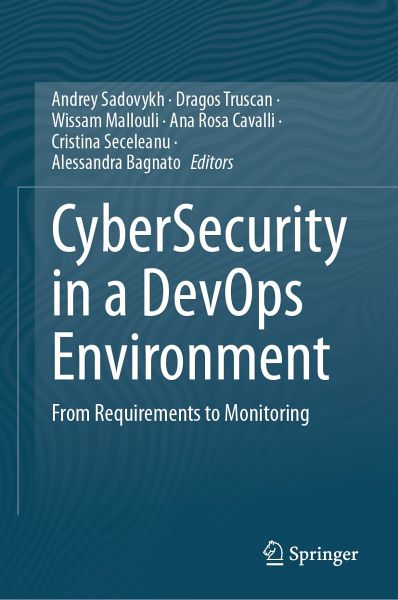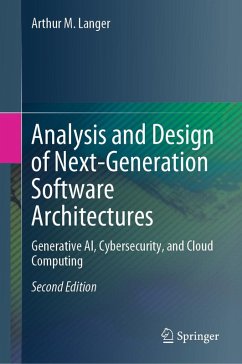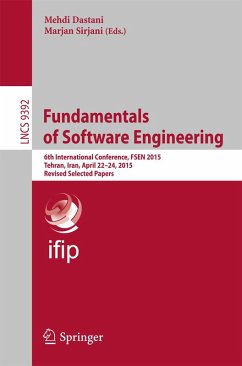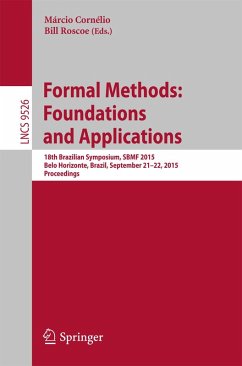
CyberSecurity in a DevOps Environment (eBook, PDF)
From Requirements to Monitoring
Redaktion: Sadovykh, Andrey; Bagnato, Alessandra; Seceleanu, Cristina; Cavalli, Ana Rosa; Mallouli, Wissam; Truscan, Dragos

PAYBACK Punkte
76 °P sammeln!
This book provides an overview of software security analysis in a DevOps cycle including requirements formalisation, verification and continuous monitoring. It presents an overview of the latest techniques and tools that help engineers and developers verify the security requirements of large-scale industrial systems and explains novel methods that enable a faster feedback loop for verifying security-related activities, which rely on techniques such as automated testing, model checking, static analysis, runtime monitoring, and formal methods.The book consists of three parts, each covering a dif...
This book provides an overview of software security analysis in a DevOps cycle including requirements formalisation, verification and continuous monitoring. It presents an overview of the latest techniques and tools that help engineers and developers verify the security requirements of large-scale industrial systems and explains novel methods that enable a faster feedback loop for verifying security-related activities, which rely on techniques such as automated testing, model checking, static analysis, runtime monitoring, and formal methods.
The book consists of three parts, each covering a different aspect of security engineering in the DevOps context. The first part, "Security Requirements", explains how to specify and analyse security issues in a formal way. The second part, "Prevention at Development Time", offers a practical and industrial perspective on how to design, develop and verify secure applications. The third part, "Protection at Operations", eventually introduces tools for continuous monitoring of security events and incidents. Overall, it covers several advanced topics related to security verification, such as optimizing security verification activities, automatically creating verifiable specifications from security requirements and vulnerabilities, and using these security specifications to verify security properties against design specifications and generate artifacts such as tests or monitors that can be used later in the DevOps process.
The book aims at computer engineers in general and does not require specific knowledge. In particular, it is intended for software architects, developers, testers, security professionals, and tool providers, who want to define, build, test, and verify secure applications, Web services, and industrial systems.
The book consists of three parts, each covering a different aspect of security engineering in the DevOps context. The first part, "Security Requirements", explains how to specify and analyse security issues in a formal way. The second part, "Prevention at Development Time", offers a practical and industrial perspective on how to design, develop and verify secure applications. The third part, "Protection at Operations", eventually introduces tools for continuous monitoring of security events and incidents. Overall, it covers several advanced topics related to security verification, such as optimizing security verification activities, automatically creating verifiable specifications from security requirements and vulnerabilities, and using these security specifications to verify security properties against design specifications and generate artifacts such as tests or monitors that can be used later in the DevOps process.
The book aims at computer engineers in general and does not require specific knowledge. In particular, it is intended for software architects, developers, testers, security professionals, and tool providers, who want to define, build, test, and verify secure applications, Web services, and industrial systems.
Dieser Download kann aus rechtlichen Gründen nur mit Rechnungsadresse in A, B, BG, CY, CZ, D, DK, EW, E, FIN, F, GR, HR, H, IRL, I, LT, L, LR, M, NL, PL, P, R, S, SLO, SK ausgeliefert werden.












